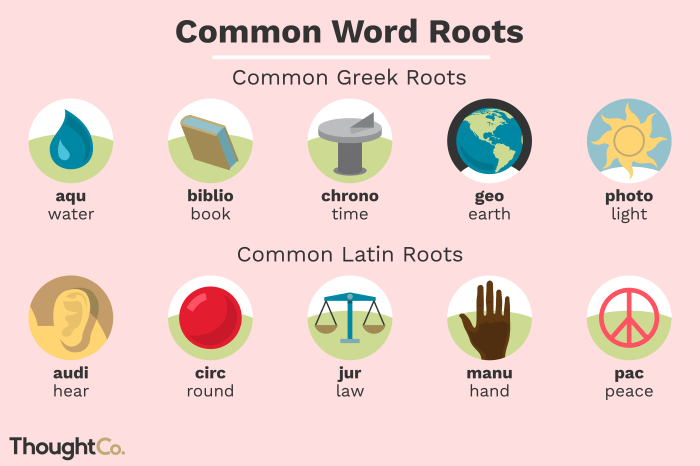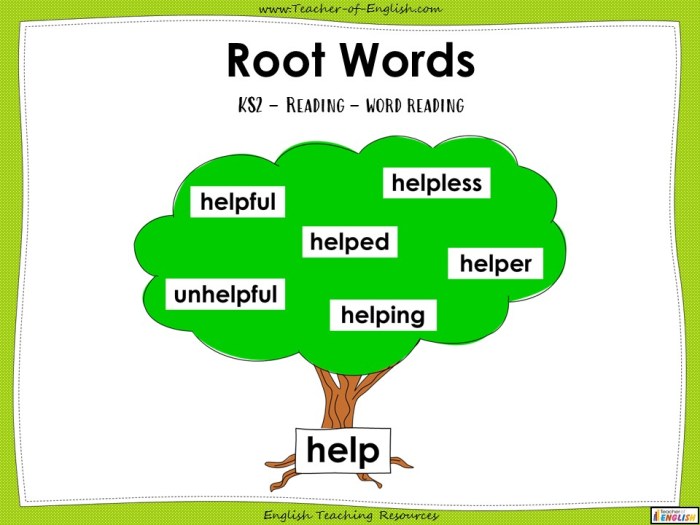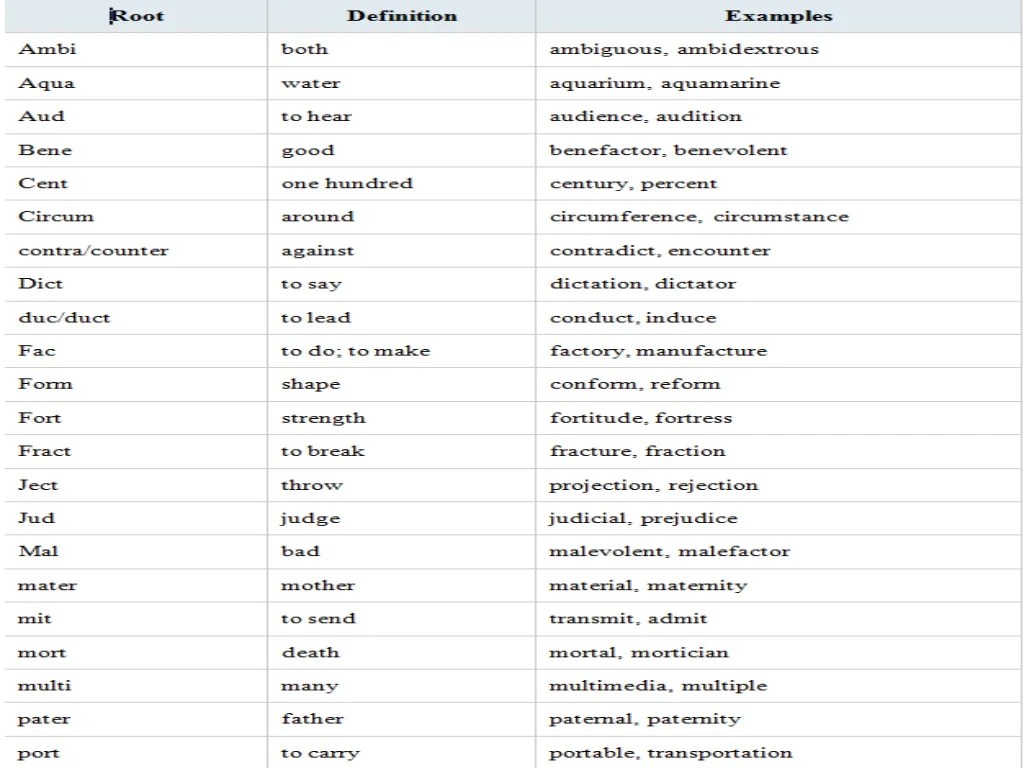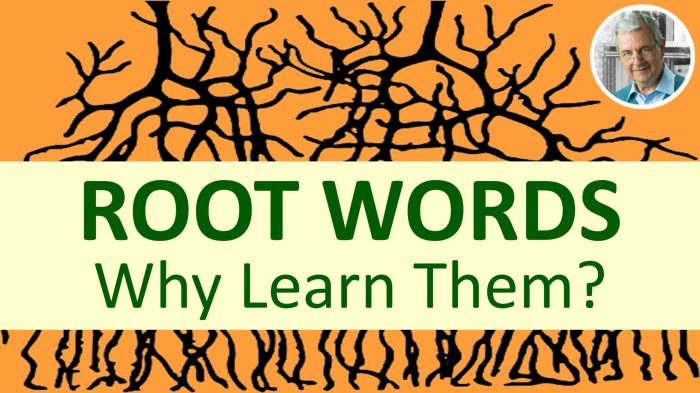Words with the root word grat – Words with the root “grat” are like a tapestry woven with threads of gratitude, grace, and generosity. Embark on a journey through their etymology, semantics, and cultural significance, and discover the profound impact they have on our language, society, and well-being.
From their humble Latin origins to their diverse meanings in modern English, words with the root “grat” have evolved to encompass a wide range of emotions and ideas.
Etymology and Origins of Words with the Root “Grat”

The root “grat” originates from the Latin word “gratus,” which means “pleasing” or “agreeable.” Over time, this root has evolved into various words in the English language, each carrying a unique meaning and nuance.
Initially, the root “grat” was primarily associated with concepts of favor, kindness, and gratitude. However, as the language evolved, it also came to encompass ideas of appreciation, approval, and even physical attractiveness.
Semantic Shifts
The semantic shifts that occurred over time in words with the root “grat” are fascinating. For instance, the word “gratify” originally meant “to please” or “to make grateful.” However, its meaning has since expanded to include the notion of satisfying a desire or need.
Similarly, the word “gratuitous” initially meant “given freely” or “without charge.” Over time, it has acquired a secondary meaning of “unnecessary” or “unwarranted,” reflecting a subtle shift in its connotation.
Semantic Range of Words with the Root “Grat”

Words with the root “grat” generally convey ideas related to appreciation, kindness, and favor. To further explore their semantic range, we can categorize them based on their specific meanings:
Expression of Gratitude
- Gratitude:A feeling of deep appreciation for a benefit or favor received; thankfulness.
- Grateful:Feeling or expressing gratitude; thankful.
- Gratefully:In a grateful manner; with gratitude.
Acts of Kindness and Generosity
- Gracious:Kind, courteous, and benevolent; showing favor or mercy.
- Graciously:In a gracious manner; with kindness or favor.
- Gratuity:A gift or tip given in appreciation for a service or favor.
- Gratis:Free of charge; without payment.
Pleasant or Agreeable, Words with the root word grat
- Gratifying:Giving pleasure or satisfaction; enjoyable.
- Gratification:The act of pleasing or satisfying; pleasure or enjoyment.
Nuances and Differences
While some words share similar meanings, they may differ in their nuances and contexts of use. For instance, “gratitude” and “thankfulness” both express appreciation, but “gratitude” often implies a deeper and more heartfelt sense of thankfulness. Similarly, “gracious” and “kind” both denote kindness, but “gracious” suggests a more formal and dignified form of kindness.
Cultural and Social Implications of Words with the Root “Grat”

Words with the root “grat” hold profound cultural and social significance, reflecting societal values, norms, and expectations surrounding gratitude. Gratitude, as expressed through these words, plays a pivotal role in fostering social cohesion, strengthening relationships, and shaping cultural practices.
Role of Gratitude in Different Cultures and Historical Periods
Gratitude is a universal human emotion that has been recognized and valued across cultures and historical epochs. In ancient Greece, gratitude was considered a virtue and a foundation of social harmony. The philosopher Aristotle believed that gratitude was essential for maintaining healthy relationships and for fostering a sense of community.
In many Eastern cultures, such as China and Japan, gratitude is deeply ingrained in social etiquette and religious practices. The concept of “on” in Japanese, for instance, encompasses not only gratitude but also a sense of indebtedness and obligation to others.
Words with the root word grat, meaning “thankful,” can be used to express gratitude in a variety of ways. If you’re looking for more practice with daily oral language, check out this resource on daily oral language 5th grade . There, you’ll find plenty of opportunities to use words like “gratitude,” “appreciation,” and “thankful” in conversation.
Throughout history, gratitude has been expressed through various rituals, customs, and traditions. In many cultures, it is customary to offer gifts or tokens of appreciation to show gratitude for kindness, support, or favors received.
Social Etiquette and Expectations Surrounding Expressions of Gratitude
Social etiquette and expectations surrounding expressions of gratitude vary widely across cultures. In some cultures, it is considered impolite to express gratitude excessively, while in others, it is expected to be effusive in one’s expressions of thanks.
The form and frequency of gratitude expressions can also be influenced by social status, gender, and other factors. In many hierarchical societies, for example, it is customary for subordinates to express gratitude to their superiors more frequently and in more formal ways.
In contemporary society, the rise of social media and digital communication has created new opportunities and challenges for expressing gratitude. While social media platforms can facilitate the sharing of gratitude with a wider audience, they can also lead to a sense of comparison and competition among individuals.
Literary and Artistic Applications of Words with the Root “Grat”
Words with the root “grat” evoke a sense of appreciation, gratitude, and recognition for the contributions or qualities of others. In literature, poetry, and other art forms, these words are skillfully employed to create vivid imagery, convey deep emotions, and shape character development.
In literature, the use of words with the root “grat” often serves to highlight the significance of gratitude and its transformative power. For instance, in the novel “The Great Gatsby” by F. Scott Fitzgerald, the protagonist, Jay Gatsby, lavishly expresses his gratitude towards his mentor, Dan Cody, who played a pivotal role in shaping his life.
Through Gatsby’s actions, Fitzgerald emphasizes the profound impact that gratitude can have on an individual’s journey.
Notable Quotes and Passages
- “Gratitude is the fairest blossom which springs from the soul.” – Henry Ward Beecher
- “For it is not in receiving that we truly give, and it is not in giving that we truly receive, but in the act of gratitude that the circle is completed.” – Antoine de Saint-Exupéry, “The Little Prince”
- “I would maintain that thanks are the highest form of thought, and that gratitude is happiness doubled by wonder.” – Gilbert K. Chesterton
In poetry, words with the root “grat” are often used to evoke a sense of awe and appreciation for the beauty and wonder of the world. For instance, in the poem “Ode to a Nightingale” by John Keats, the speaker expresses his gratitude for the nightingale’s enchanting song, which transports him to a realm of pure joy and tranquility.
Impact on Tone, Mood, and Character Development
The use of words with the root “grat” can significantly influence the tone, mood, and character development in literary works. Gratitude and appreciation can create a positive and uplifting atmosphere, while ingratitude can lead to conflict and negative emotions. Furthermore, the expression of gratitude can reveal a character’s humility, kindness, and capacity for empathy.
Cognitive and Psychological Aspects of Words with the Root “Grat”

Understanding and expressing gratitude involves cognitive processes like encoding, retrieval, and evaluation. Gratitude is a complex emotion that encompasses recognition, appreciation, and a desire to reciprocate kindness.
Impact of Gratitude on Well-Being
Research suggests that gratitude has numerous psychological benefits, including:
- Increased happiness and life satisfaction
- Reduced stress and anxiety
- Enhanced resilience and coping abilities
- Improved physical health and well-being
Emotional and Behavioral Influence
Words with the root “grat” can influence emotions and behaviors by:
- Triggering feelings of warmth, appreciation, and connection
- Promoting prosocial behaviors, such as helping and sharing
- Motivating individuals to seek out and appreciate the positive aspects of life
- Fostering a sense of meaning and purpose
Cross-Linguistic Comparisons of Words with the Root “Grat”

Words with the root “grat” exhibit a diverse array of meanings and cultural significance across different languages. By examining their similarities and differences, we can gain insights into the evolution of language and the cultural contexts that shape their usage.
In many Indo-European languages, words with the root “grat” convey the notion of favor, gratitude, or pleasantness. For instance, in English, “gratitude” expresses a feeling of thankfulness, while in French, “grâce” refers to grace, favor, or kindness. In Latin, “gratia” signifies favor, gratitude, or pleasing qualities.
Similarities
- Expression of Gratitude:Words with the root “grat” often express gratitude or appreciation in various languages. For example, “grato” in Italian and “grato” in Spanish both convey a sense of thankfulness or appreciation.
- Positive Connotations:Words with the root “grat” frequently carry positive connotations, indicating favor, kindness, or pleasantness. This is evident in terms like “gratify” in English, “grato” in Italian, and “agréable” in French.
- Grace and Beauty:In some languages, words with the root “grat” are associated with grace, beauty, or charm. For instance, “gratia” in Latin and “grazie” in Italian can refer to these qualities.
Differences
- Nuances of Meaning:While sharing common themes, words with the root “grat” may have subtle differences in meaning across languages. For example, “grato” in Spanish specifically refers to something pleasing or agreeable, whereas “gratitude” in English emphasizes a sense of thankfulness.
- Cultural Variations:The cultural significance of words with the root “grat” varies across languages. In English, “gratitude” is often associated with formal expressions of thanks, while in some other cultures, it may be expressed more informally.
- Unique Features:Certain languages may have unique features in their usage of words with the root “grat.” For instance, in Japanese, the word “katakana” (カタカナ) is derived from the root “grat” and refers to a type of phonetic script used for foreign words.
Common Queries: Words With The Root Word Grat
What is the origin of the root “grat”?
The root “grat” originates from the Latin word “gratus,” meaning “pleasing” or “thankful.”
How has the meaning of words with the root “grat” changed over time?
Words with the root “grat” have undergone semantic shifts, broadening their meanings to include concepts such as graciousness, kindness, and even free of charge.
What is the cultural significance of words with the root “grat”?
Words with the root “grat” reflect societal values of appreciation, politeness, and reciprocity, and play a crucial role in social etiquette and interpersonal relationships.